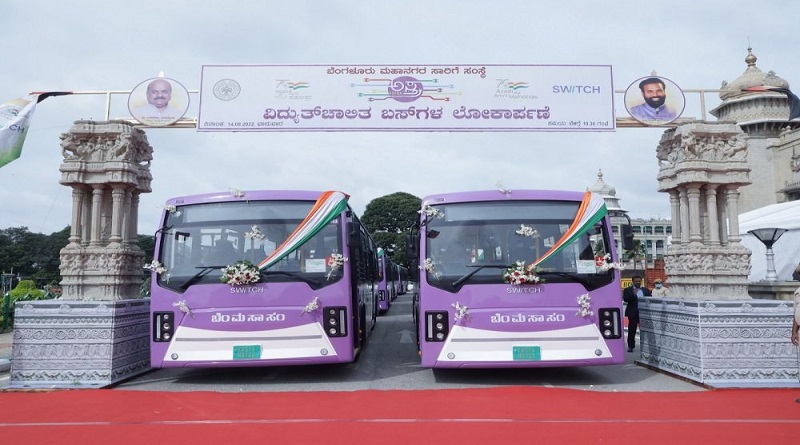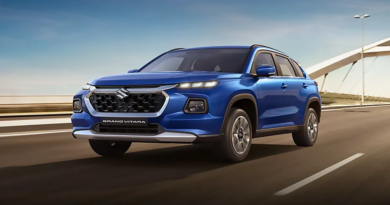Karnataka’s Green Revolution: 14,750 Electric Buses to Transform Urban Mobility by 2026

Karnataka’s Electric Bus Initiative: A Sustainable Leap Towards Green Urban Mobility
In a significant stride towards sustainable urban transportation, the Karnataka government has embarked on an ambitious plan to introduce electric buses across the state. Under the Prime Minister’s E-Drive Scheme, the state aims to revolutionize public transport, reduce pollution, and promote eco-friendly mobility solutions.
Understanding the PM E-Drive Scheme
The PM E-Drive Scheme is a central government initiative designed to promote electric vehicles (EVs) in public transportation. It aims to provide subsidies for the procurement of electric buses, thereby reducing the operational costs for state transport undertakings. This scheme supports the deployment of over 14,000 electric buses across major Indian cities, including Bengaluru, to foster cleaner and more efficient public transport systems .
Karnataka’s Commitment to Electric Mobility
In the 2025-26 budget, Chief Minister Siddaramaiah announced the allocation of 9,000 electric buses to the Bengaluru Metropolitan Transport Corporation (BMTC), marking a substantial investment in green public transport. Additionally, the state plans to introduce 1,000 new diesel buses under the Gross Cost Contract (GCC) model to enhance connectivity in regions where electric mobility is still developing .
The total number of electric buses to be inducted across Karnataka under various schemes, including PM e-DRIVE, PM-eBus Sewa, and externally aided projects, is projected to reach 14,750 by 2025-26 .
Targeted Cities for Electric Bus Deployment
The Karnataka government has identified 11 cities eligible for the introduction of electric buses under the PM-eBus Sewa Scheme. These cities include Mysuru, Mangaluru, Davangere, Shivamogga, Tumakuru, Belagavi, Hubballi, Dharwad, Kalaburagi, Ballari, and Vijayapura. Collectively, these cities have requested a total of 795 electric buses, with the Karnataka State Road Transport Corporation (KSRTC) seeking 350 buses to serve routes in Mysuru, Mangaluru, Davangere, Shivamogga, and Tumakuru .
Infrastructure and Technological Enhancements
To support the deployment of electric buses, the Karnataka government is investing in the development of necessary infrastructure. This includes establishing EV charging stations, upgrading bus depots, and implementing advanced vehicle maintenance systems. The integration of technology aims to ensure the efficient operation of the electric bus fleet and provide a seamless experience for passengers.
Additionally, the government is focusing on the modernization of key transport hubs. Plans are underway to redevelop Bengaluru’s Kempegowda Bus Station (Majestic) into a commercial complex under the public-private partnership (PPP) model. A new satellite bus stand is also proposed at KR Puram in Bengaluru’s East zone to further enhance connectivity .
Economic and Environmental Implications
The introduction of electric buses is expected to have significant economic and environmental benefits. By reducing reliance on fossil fuels, electric buses will decrease greenhouse gas emissions and air pollution, contributing to improved public health and a cleaner environment. Economically, the shift to electric mobility can lead to reduced operational costs for public transport due to lower fuel and maintenance expenses.
Furthermore, the expansion of electric bus fleets is anticipated to create employment opportunities in manufacturing, infrastructure development, and maintenance sectors, thereby boosting the local economy.
Challenges and the Path Forward
Despite the promising outlook, the transition to electric buses presents several challenges. The initial capital investment for procuring electric buses and setting up charging infrastructure is substantial. Additionally, the successful implementation of the PM E-Drive Scheme requires effective coordination between central and state governments, as well as collaboration with private sector partners.
To address these challenges, the Karnataka government is exploring various financing models, including public-private partnerships, to mobilize the necessary resources. Continuous monitoring and evaluation of the electric bus fleet’s performance will be essential to ensure its sustainability and effectiveness in meeting the state’s transportation needs.
Conclusion
Karnataka’s initiative to introduce electric buses under the PM E-Drive Scheme marks a significant step towards sustainable urban mobility. By investing in green public transport, the state aims to reduce pollution, enhance connectivity, and promote eco-friendly transportation solutions. With continued government support and collaboration with stakeholders, Karnataka is poised to set a benchmark for other states in the adoption of electric mobility.
As the state progresses with the implementation of this initiative, it will be crucial to monitor its impact on urban mobility, environmental quality, and economic development. The success of Karnataka’s electric bus program can serve as a model for other regions seeking to transition to sustainable and efficient public transportation systems.




